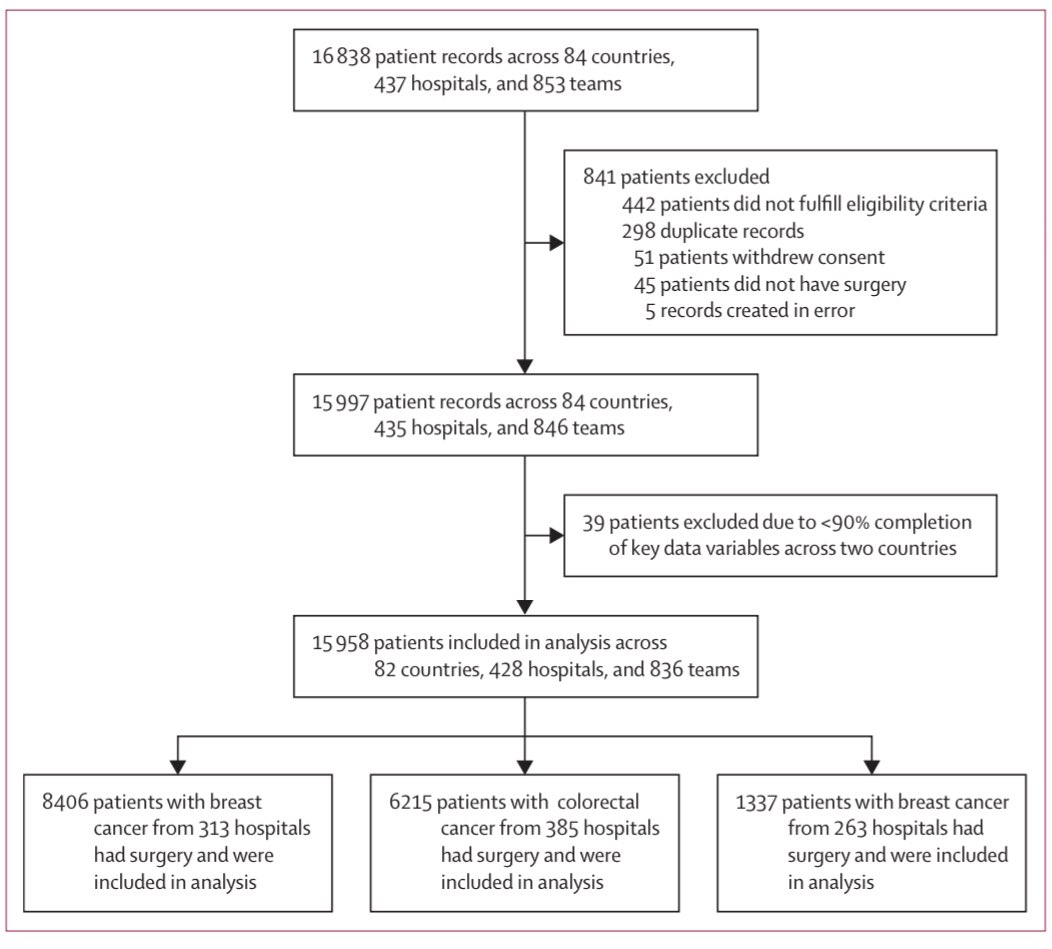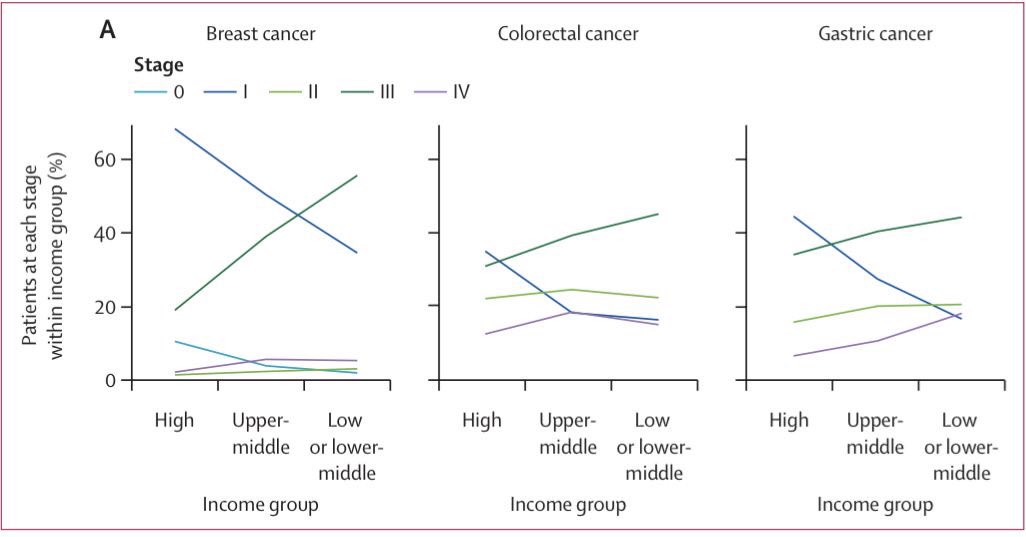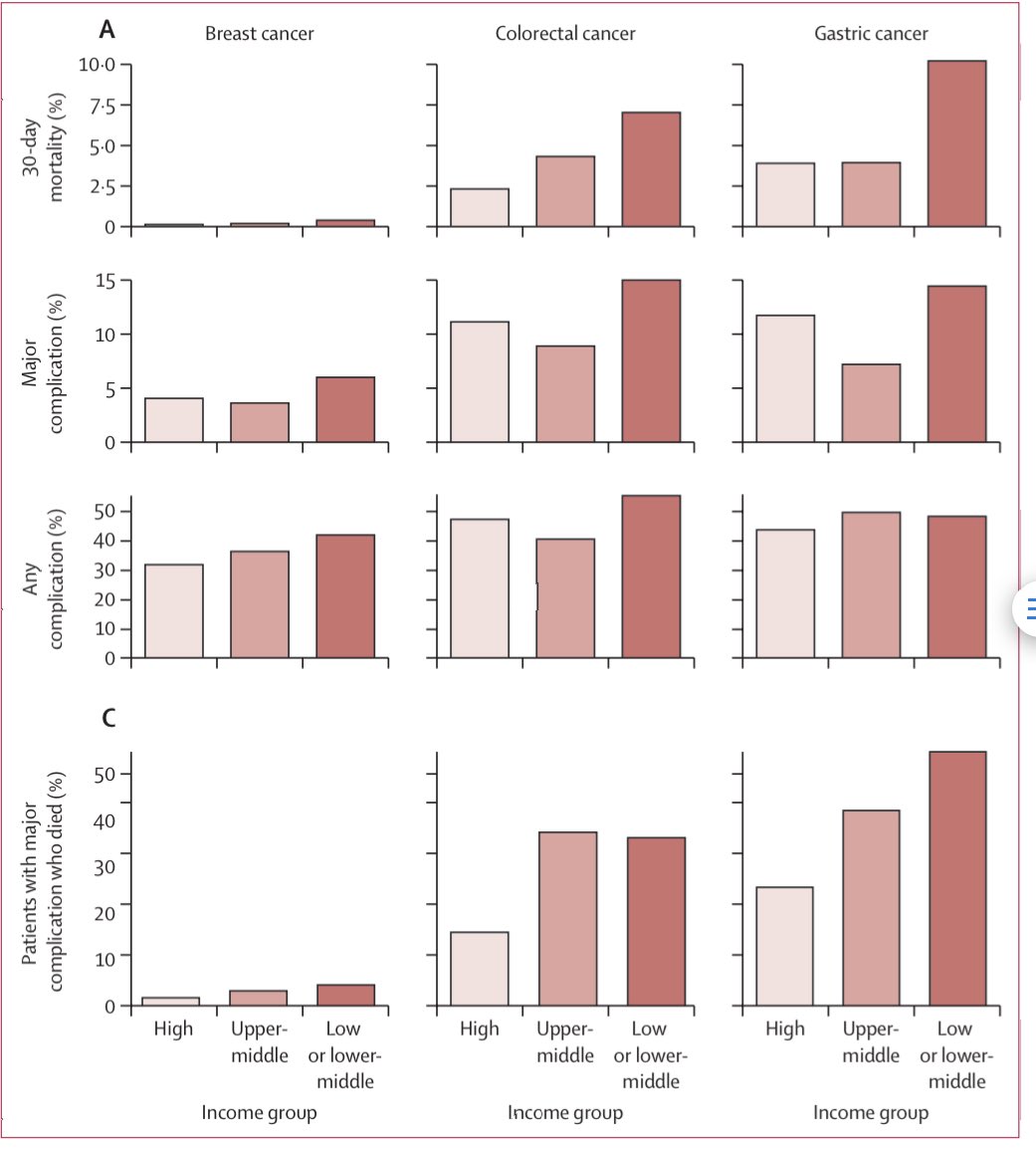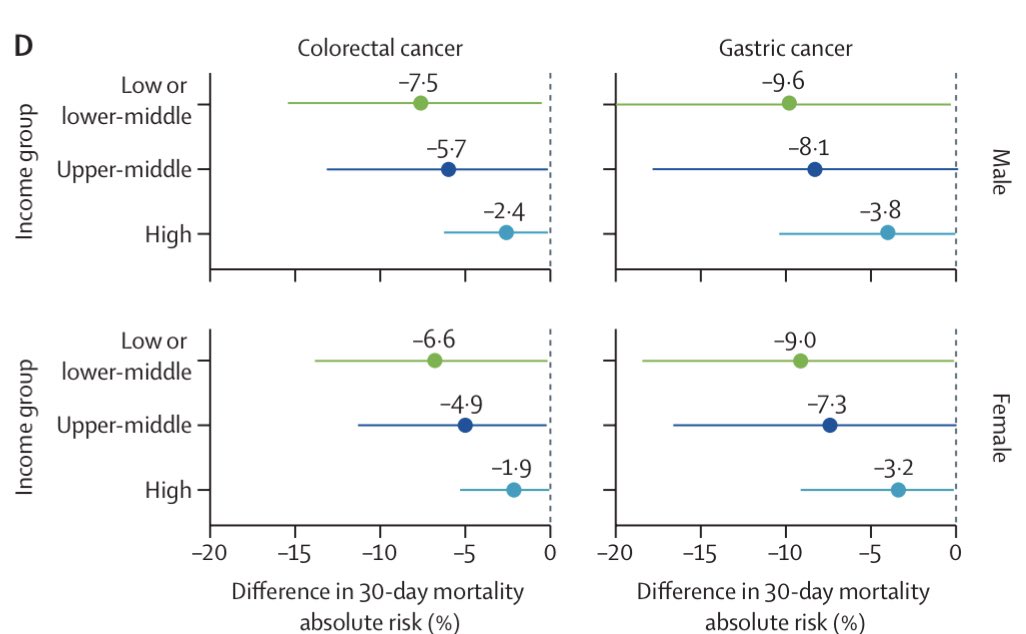@GlobalSurg 3: Global variation in postoperative mortality & complications after cancer surgery, published in @TheLancet
16K patients underwent surgery across 82 countries.
Better postoperative care & facilities could significantly improve #cancer survival
https://www.thelancet.com/journals/lancet/article/PIIS0140-6736(21)00001-5/fulltext
16K patients underwent surgery across 82 countries.
Better postoperative care & facilities could significantly improve #cancer survival
https://www.thelancet.com/journals/lancet/article/PIIS0140-6736(21)00001-5/fulltext
2642 collaborators from across the world came together to better understand the risks for patients undergoing surgery for #breastcancer, stomach (gastric) cancer, and #bowelcancer.
Cancer presents at a more advanced stage in low and middle income countries. This needs to change if cancer care is to improve and sustainable development goals are to be met.
Mortality in the first 30 days after stomach and bowel cancer surgery is 4x higher in low and middle income countries.
However, complication rates are similar across the world.
The ability to save people from commonly occurring complications is termed “capacity to rescue”.
However, complication rates are similar across the world.
The ability to save people from commonly occurring complications is termed “capacity to rescue”.
Better and consistently available post-surgery care could save 4-10 lives for every 100 patients with complications.
While we need to reduce the occurrence of complications, we also need to quickly detect and effectively act to prevent patients deteriorating.
While we need to reduce the occurrence of complications, we also need to quickly detect and effectively act to prevent patients deteriorating.
The importance of health systems being able to rescue patients from complications has been known for decades.
Surgical teams around the world are talented and diligent, but investment in better facilities & systems to detect & intervene upon complications will save many lives.
Surgical teams around the world are talented and diligent, but investment in better facilities & systems to detect & intervene upon complications will save many lives.

 Read on Twitter
Read on Twitter






